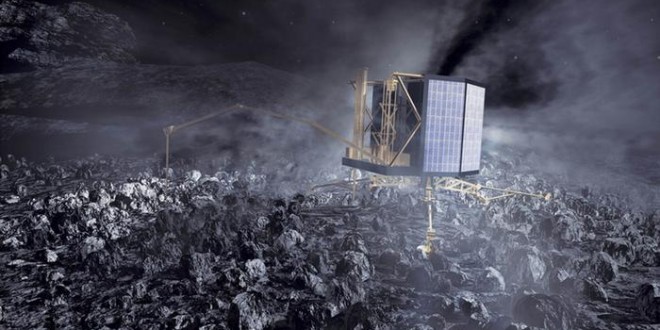Researchers have given up hope of restoring contact with space probe Philae.
Philae landed on a comet in a pinpoint operation in November 2014 but lost power because its solar-driven batteries were in the shade.
Before it stopped communicating, Philae sent back reams of data about 67P/Churyumov-Gerasimenko that scientists will spend years analysing.
The mother craft, Rosetta, will continue to carry out scientific measurements in orbit around comet 67P until September, when it will be steered to land on the surface as well.
Conditions on comet 67P have become so cold – falling below minus 180C (minus 292F) at night – that the washing machine-sized probe could not function.
“Unfortunately, the probability of Philae re-establishing contact with our team at the DLR Lander Control Centre is almost zero, and we will no longer be sending any commands,” said project manager Stephan Ulamec.
“It would be very surprising if we received a signal now.”
The probe’s landing in November 2014 did not go entirely as planned: Philae was unable to tether itself to the icy surface of 67P and bounced off the surface three times before coming to rest near a cliff where its solar panels received less sunlight than hoped.
The comet is 138 million miles from Earth, between the orbits of Mars and Jupiter.
Agencies/Canadajournal
 Canada Journal – News of the World Articles and videos to bring you the biggest Canadian news stories from across the country every day
Canada Journal – News of the World Articles and videos to bring you the biggest Canadian news stories from across the country every day



